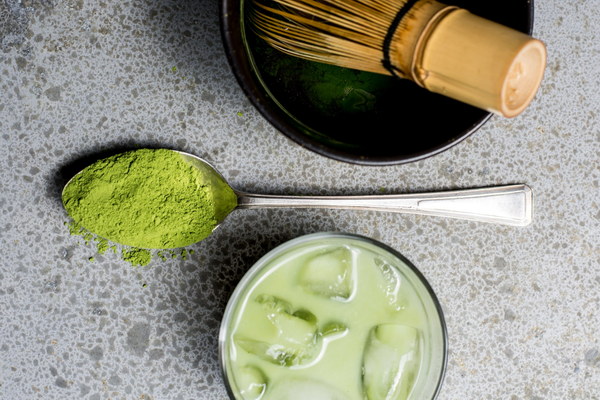Does Green Tea Really Offer Liver Protection and Nourishment
Green tea, a popular beverage across the globe, has been lauded for its numerous health benefits. One of the most frequently discussed advantages of green tea is its potential role in liver protection and nourishment. But does green tea really offer these benefits? Let's explore the science behind this claim.

The liver is a vital organ responsible for detoxifying the body, metabolizing nutrients, and producing bile. Unfortunately, it is also prone to damage from various factors, including alcohol, medication, and environmental toxins. Over time, this damage can lead to liver diseases such as hepatitis, cirrhosis, and even liver cancer.
Green tea is rich in antioxidants, primarily in the form of polyphenols, such as epigallocatechin gallate (EGCG). These compounds have been shown to have numerous health benefits, including anti-inflammatory, anti-carcinogenic, and anti-aging properties. The question is, do these properties translate to liver protection and nourishment?
Research indicates that green tea may indeed offer liver protection and nourishment. Here are some of the key reasons why:
1. Antioxidant Protection: As mentioned earlier, green tea's high polyphenol content provides a potent antioxidant defense against free radicals. These harmful molecules can cause oxidative stress, leading to liver damage. By neutralizing free radicals, green tea may help reduce the risk of liver disease.
2. Hepatitis B and C: Green tea has been found to have a protective effect against hepatitis B and C, two common causes of liver disease. A study published in the Journal of Hepatology found that EGCG, a major component of green tea, can inhibit the replication of the hepatitis B virus.
3. Alcohol-induced Liver Damage: Alcohol consumption is a leading cause of liver disease. Green tea may help mitigate the damage caused by alcohol. A study published in the Journal of Nutrition found that green tea consumption can reduce liver enzymes, indicating improved liver function in individuals with alcohol-induced liver damage.
4. Metabolic Syndrome: Metabolic syndrome is a cluster of conditions that increase the risk of heart disease, stroke, and diabetes. It is also associated with non-alcoholic fatty liver disease (NAFLD). Green tea has been shown to improve metabolic syndrome markers, including insulin resistance, high blood pressure, and high cholesterol levels, which may help protect against NAFLD.
5. Anti-inflammatory Effects: Chronic inflammation is a key factor in the development of liver disease. Green tea's anti-inflammatory properties may help reduce liver inflammation, thereby protecting the organ from further damage.
While the evidence suggests that green tea can offer liver protection and nourishment, it is essential to note that more research is needed to fully understand its potential benefits. Additionally, green tea should not be considered a substitute for medical treatment in cases of liver disease.
In conclusion, green tea's high antioxidant content and potential anti-inflammatory, anti-carcinogenic, and anti-viral properties make it a promising candidate for liver protection and nourishment. Incorporating green tea into a healthy diet and lifestyle may help reduce the risk of liver disease and support overall liver health. However, it is crucial to consult with a healthcare professional before making significant changes to your diet or treatment plan.









